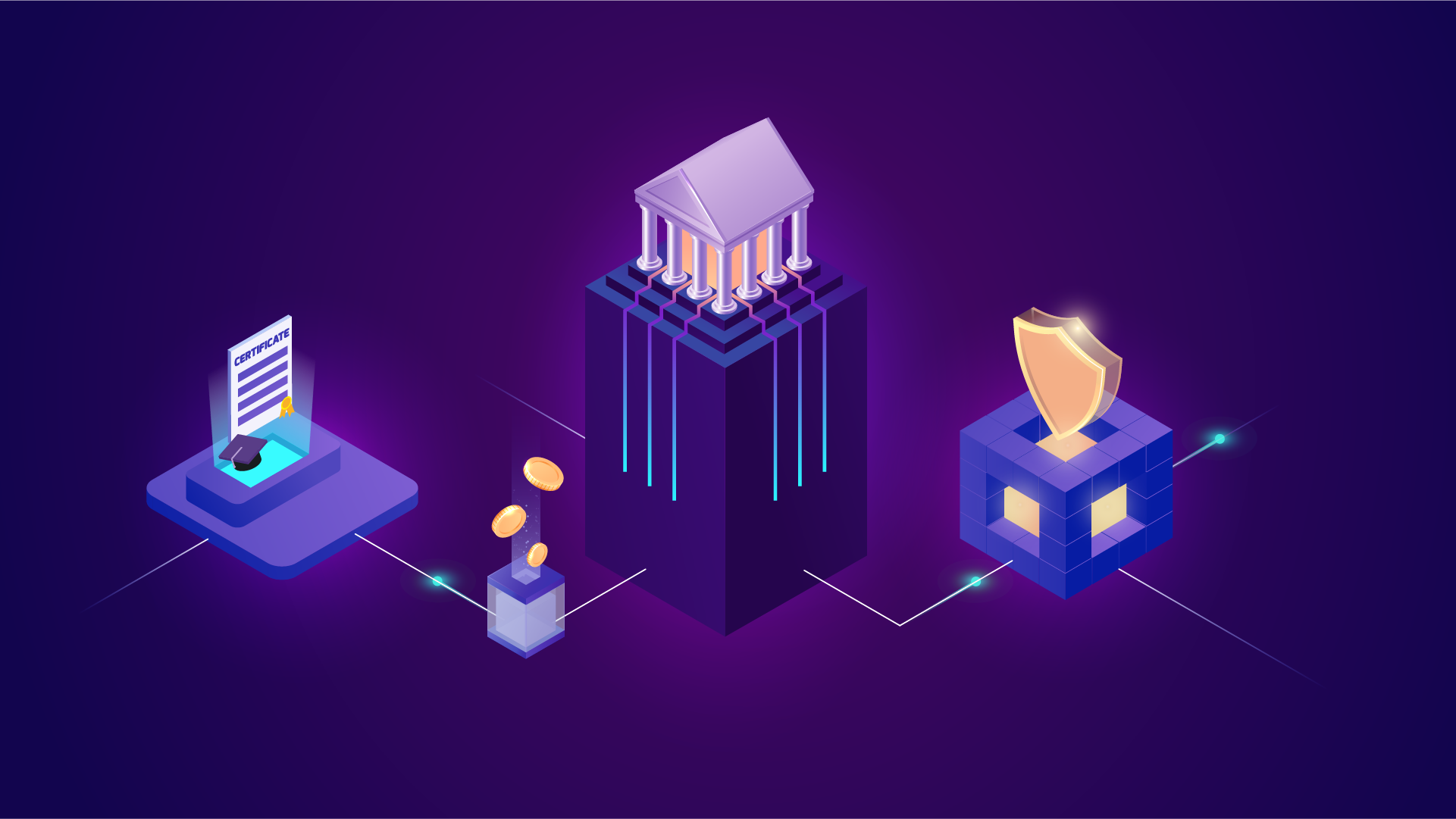In an age where digital transformation is reshaping industries, energy tokenization is emerging as a revolutionary concept that has the potential to transform the energy sector as we know it. This innovative technology has full potential to change the way we generate, distribute, and consume energy, making it more efficient, sustainable, and accessible.
In this article, we are exploring the world of energy tokenization, its benefits, and potential impact on the the whole energy industry.
Understanding Energy Tokenization
Energy tokenization allows to represent various energy assets as digital tokens, using blockchain technology. These tokens can be bought, sold, and traded on various online platforms, just like other digital assets, e.g. cryptocurrencies. This approach allows to make the energy market more decentralized and accessible to individuals and organizations, enabling direct participation in the energy market.
Energy Tokenization in Practice
How does energy tokenization work and what are its applications? How can one tokenize an energy-related asset or participate in it? Here are just some practical examples of use cases in the industry:
- Tokenizing wind turbines: A wind farm owner can issue tokens that represent the electricity generated by the wind turbines and sell them to buyers who want to access green energy or offset their carbon emissions. For instance, Riddle&Code and Wien Energie have built a platform called MyPower that allows customers to invest in wind and solar energy through tokenization [1]. Another example is WindShare, a project that aims to democratize wind energy ownership and distribution through a decentralized platform.
- Tokenizing solar farms: A solar farm owner can lease out solar panels to investors who want to participate in the clean energy sector. The investors receive tokens that represent the ownership and income rights of the solar panels. The investors can earn revenue from the electricity sales or trade their tokens with others. For example, Sun Exchange is a platform that allows anyone to buy solar cells and lease them to schools and businesses in Africa [2].
- Tokenizing carbon credits: Carbon credits are certificates that represent the reduction of greenhouse gas emissions by one ton of carbon dioxide equivalent. They can be used by companies or individuals to offset their carbon footprint or comply with environmental regulations. Tokenizing carbon credits means creating digital tokens that represent the carbon credits on a blockchain network. This can enhance the transparency, traceability, and liquidity of the carbon market, as well as reduce the transaction costs and fraud risks. Some examples of startups that are tokenizing carbon credits are CarbonX and Toucan.
Benefits of Energy Tokenization
- Improved Accessibility: Energy tokenization democratizes access to energy resources. Removing traditional barriers allows individuals to invest easily in renewable energy projects and facilitates the distribution of their own generated energy, significantly reducing the reliance on centralized utilities.
- More Efficiency: Blockchain technology traditionally offers more transparency and traceability which can optimize energy supply chain and result in reduced energy waste, lower costs, and more reliable energy delivery.
- Decentralization: Traditional energy systems are centralized, with a very few key players controlling the market. Energy tokenization encourages decentralization, promoting competition, reducing oligopoly or the monopoly-like control held by a handful of entities.
- Transparency and Security: Blockchain technology ensures transparent and secure transactions, allowing all players to easily trace the original source of energy and generally have a clear overview of the whole supply chain. This reduces the potential for fraud and manipulation in energy markets, instilling trust among participants.
- Asset Fractionalization: Fractionalization of energy assets is another important benefit of energy tokenization. It enables micro-investments, which allows individuals to invest, for instance, in small portions of a solar farm, wind turbine, or any other energy project, diversifying their energy portfolio.
- Sustainability: Energy tokenization can incentivize the development of renewable energy projects and facilitate the fundraising processes for such projects. By making it easier for small investors to support clean energy initiatives, we can collectively reduce our carbon footprint and combat climate change.
- Access to a broader Investor group: Tokenized assets can be bought globally and are not limited to traditional investors only, but also appeal to the global Web3 and Crypto Community.
Potential Impact on the Energy Industry
Energy tokenization has the potential to transform the energy market into a more competitive space, with a bigger variety of energy providers and a strong focus on renewable energy, which will most certainly accelerate the transition to a more sustainable, low-carbon energy future.
Decentralization and blockchain can also improve energy security by reducing vulnerabilities that come with the centralized systems. In addition to this, energy tokenization could bring more financial inclusion, especially to underserved communities, empowering them with access to affordable, clean energy and improving the quality of life and economic prospects for many individuals.
Challenges
The adoption of energy tokenization naturally comes with certain considerations. They mainly include regulatory hurdles, interoperability issues, and concerns about energy grid stability. Additionally, the energy sector must go through the transition from centralized to decentralized systems.
Cryptix Tokenization can help you with utilizing the blockchain technology in the energy sector and navigate in its regulatory landscape. Get started with an energy tokenization project by booking your free consultation with our experts.
Energy tokenization could be a crucial component for the future development of the energy industry and particularly European energy security. Diversifying energy sources, enabling smart investments and reaching more sustainable approach are essential parts of European Union’s REPowerEU Plan [3] that aims to create a more independent, safe and sustainable energy industry in Europe. Here is where the tokenization aspect could come in play and support the gradual implementation of such initiatives both in Europe and worldwide.
[1] Wind turbine tokenization – hype or highly promising?
https://www.windindustry-in-germany.com/expertenwissen/wind-turbine-tokenization-hype-or-highly-promising
[2] Digital Data “Tokenization” and the Drive to Develop Decentralized Solar, Renewable and Hybrid Energy Transaction Networks: https://solarmagazine.com/digital-data-tokenization-decentralized-solar-renewable-hybrid-energy-transaction-networks
[3] Communication from the Commission to the European Parliament, the European Council, the Council, the European Economic and Social Committee and the Committee of the Regions: REPowerEU Plan: https://eur-lex.europa.eu/legal-content/EN/TXT/?uri=COM%3A2022%3A230%3AFIN&qid=1653033742483



